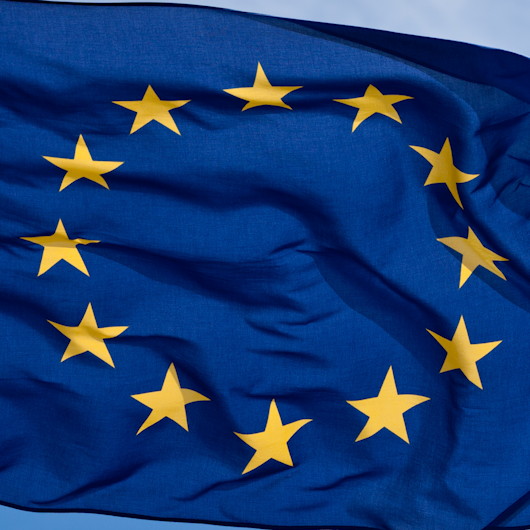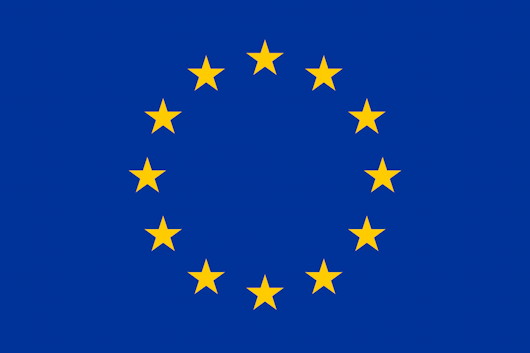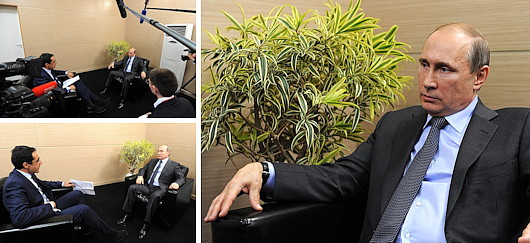European Union
About Andrew Cusack
 Writer, web designer, etc.; born in New York; educated in Argentina, Scotland, and South Africa; now based in London.
Writer, web designer, etc.; born in New York; educated in Argentina, Scotland, and South Africa; now based in London. read more
News
Blogs
Reviews & Periodicals
Arts & Design
World
France
Mitteleuropa
Knickerbockers
Argentina
The Levant
Africa
Cape of Good Hope
Netherlands
Scandinavia
Québec
India
Muscovy
Germany
Academica
The Crown of Stars

Following the horrors of the Second World War, there was a concerted effort to re-Christianise Europe, to ensure that the horrors inflicted by nationalist and Marxist socialism would never be repeated. For a time, statesmen like Konrad Adenauer in Germany and Alcide de Gasperi in Italy actually had remarkable success in promoting a Christian Democracy in which the sovereignty of Almighty God and the sanctity of human life, which carries the Image of God, were considered sacrosanct.
On the Feast of the Immaculate Conception 1955, the new flag of the European Union was inaugurated, emblazoned with twelve stars on a blue background. Its designer, Arsène Heitz, later disclosed that the stars represent the halo seen in images of Our Lady. After his first design incorporating the Cross had been rejected as too overtly Christian, Heitz was happy to take his inspiration from a picture of the Immaculate Conception.
At that time, there seemed to be so much promise for a Christian future in Europe — a future in which all human life at every stage of its existence, from conception to death, would be considered sacred and inviolable, thanks to that indelible Image of God emblazoned on every human soul.
— Fr Julian Large, Cong. Orat.
So preached the Provost of the London Oratory during a stirring sermon to, as usual, a packed church one Sunday in 2013.
Of course, as Fr Julian correctly continued, “then something seemed to go badly wrong”, but it would take a volume to transcribe the numerous missteps and mistakes in the process of attempting European political unity.
Still, one would need to be blind not to acknowledge some of its accomplishments, among which I would count the European flag the genesis of which Fr Julian describes. The design is both simple and dignified which is amply attested to by the ease with which it has been deployed to myriad purposes.
While later adopted and used by the European Union (and its predecessors, the EEC and EC) it was actually created earlier in 1955 by an entirely separate organisation, the Council of Europe. The Strasbourg-based body still holds the copyright to the European flag and includes among its members many parts of Europe and beyond that are not part of the EU, viz. Russia, Denmark’s Greenland, Turkey, and parts of the Caucasus.
As Great Britain’s membership of the European Union draws to a close, it is some reassurance that we can still claim the European flag as our own, not just vaguely as a European country, but even legally as a Council of Europe member state. Just as one mustn’t surrender the Cross of St George to be waved only by football hooligans and racists, nor must we allow the Crown of Stars to be monopolised by ‘remoaners’ with blind faith in ever-centralising and ever-more-remote institutions.
One hopes that, in time, whatever negative connotations the European flag may have had amongst some will fade into the past as Britain takes her natural place as the bridge connecting Europe and the rest of the world.

Putin: ‘I’d really like to see Europe show some real independence and sovereignty’
‘Europe is facing a specific problem: an influx of immigrants’ the Russian president asserts in an interview for Swiss television

Here are a few excerpts from the interview, dealing with (among other issues) the balance of power, independence and sovereignty in Europe, and relations with the United States.
Vladimir Putin: Bonsoir.
Vladimir Putin: This is done by dishonest and inattentive people. The process of starting a new arms race began from the moment of the United States’ unilateral withdrawal from the ballistic missile defence treaty. Because this agreement was a cornerstone for the entire international security system. And when the United States withdrew from it and began to create a missile defence system as part of its global strategic weapons system, we immediately said: we will be obliged to take reciprocal steps to maintain a strategic balance of power.
I want to say something very important: we are doing this for ourselves, to ensure the security of the Russian Federation, but we are also doing it for the rest of the world, because this strategic stability ensures the balance of power.
Vladimir Putin: My mother and father. My brother, whom I never met, died here during the seige.
Vladimir Putin: I hope not. But I would really like to see Europe demonstrate some real independence and sovereignty and be capable of defending its national interests, the interests of its people and its nations. […]
Vladimir Putin: […] Participation in any military and political organisation or bloc is associated with the voluntary renunciation of a certain share of one’s sovereignty.
I think that at the time, France withdrew from NATO to preserve its sovereignty more than it is possible within the framework of a military bloc. It is not our business to analyse European nations’ foreign policy. But I think you’ll agree that if we need to discuss intra-European affairs with European partners in Washington, it is not very interesting.
Vladimir Putin: I think that this is not so much support for me as the realisation of national interests as the political parties see them.
There are certain tectonic changes underway throughout the world and in Europe within the public consciousness, which are aimed at defending national interests. You must understand that right now, Europe is facing a specific problem, an influx of immigrants. And did Europe make the decision that ultimately led to this situation? We need to be sincere and honest: these decisions were made across the ocean, but Europe must deal with the problem.
Vladimir Putin: Of course. This is just one example, but there are many. But this does not mean – and I already said this – that we should somehow demonise US policy; that is not my goal. They are conducting their policy as they see necessary in their interests.
We must strive to find a balance of interests; we need to invigorate our work, give new momentum to the work by the UN Security Council. The US is certainly a great power and the American people created this nation over several centuries, it is simply an amazing result. But that does not mean that today’s US authorities have the right to travel throughout the world and grab anyone to drag back to their prison or act from a position of “anyone who is not with us is against us.”
We need to be patient and work with our American colleagues to find solutions, the way we have in some areas of our cooperation, such as with the Iranian nuclear issue.
[…]
Vladimir Putin: After our interview, do you think I am mad?
Vladimir Putin: This is part of political struggle; it has been part of my life for quite a number of years. I try not to pay too much attention to it. I simply do what I think is necessary in the interests of my country and my people.
It is not in Russia’s interests to be in confrontation with other countries, but sometimes we are forced to protect our interests, and we will undoubtedly continue to do so. However, we will seek solution not in confrontation, particularly military confrontation, but in finding compromise and mutually acceptable solutions.
With your help I would like to address not those who criticise me, but those who support me. I would like to thank them for their support and tell them that we will continue moving ahead together. Above all, I am referring not to those who portray me [as Stalin], but to those who sympathise with what we are doing and agree with it deep inside.
Merci beaucoup.
Search
Instagram: @andcusack
Click here for my Instagram photos.Most Recent Posts
- Burns Tower April 19, 2024
- Patrick in Parliament March 18, 2024
- Articles of Note: 13 March 2024 March 13, 2024
- Cambridge March 9, 2024
- Taken on Trust March 4, 2024
Most Recent Comments
Book Wishlist
Monthly Archives
Categories


